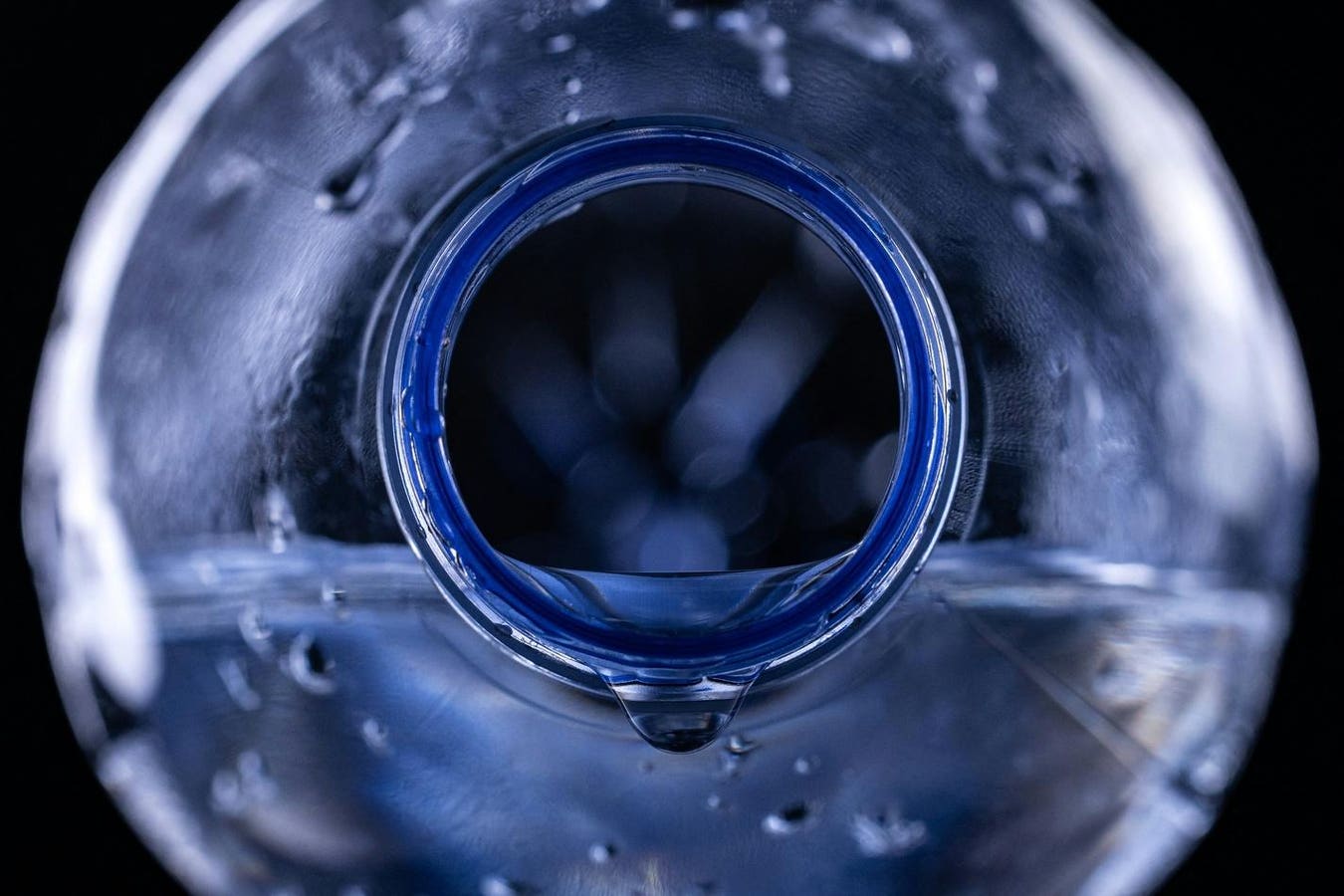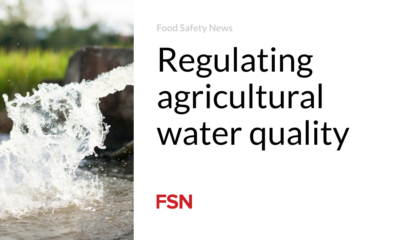Health
Your plastic water bottle could be making you gain weight: microplastics

Bottled water is up to a hundred times worse than previously thought when it comes to quantity … [+]
Microplastics: the invisible threat in our daily lives
Microplastics are everywhere. These are small particles with a diameter of less than 5 millimeters, with nanoplastics usually less than 1 micrometer in size. Primary microplastics enter the environment in sizes smaller than 5 millimeters, including microfibers and microbeads. Secondary microplastics are created by the breakdown of plastics. They usually result from floating waste in our oceans that is constantly exposed to UV radiation, which causes it to break down and enter our food chain. Microplastics have been found in sea salt, tap water and even house dust. They are also in the products we use every day. Every liter of bottled water contains at least 240,000 microplastic particles. They are not only found in plastic bottles and containers, but also come from plastic cutting boards, Teflon cookware, fabrics and beauty products. The implications of their presence in our lives are alarming. Emerging research shows that these microplastics can have a significant impact on our health, acting as endocrine disruptors, altering hormonal signaling and potentially leading to weight gain and other serious health problems.
Plastic pieces in frozen water. Despite decades of efforts, plastic pollution is only getting worse.
Xenoestrogens: a hidden hormonal danger
Microplastics can act as xenoestrogens, chemicals that mimic estrogen by binding to estrogen receptors in the body. This can disrupt hormonal balance, especially in children, leading to early puberty and unusual weight gain. The disruption of natural hormone functions is a growing concern, especially as we see more and more children suffering from these health problems at a younger age. This can also have negative effects in adult men, including weight gain, erectile dysfunction, gynecomastia, decreased sex drive, decreased energy, decreased muscle mass, and infertility.
A pregnant woman in the office.
The impact on fertility
The impact on fertility is less often discussed. Research shows that exposure to endocrine-disrupting chemicals, including microplastics, can reduce sperm count, reduce sperm quality and negatively affect testicular weight. There is also animal evidence for involvement of the uterus and ovaries. Microplastics have also been identified in human placental tissue and meconium, demonstrating fetal exposure. This is all quite worrying in light of declining fertility rates in developed countries.
The Cortisol Connection
In addition to mimicking estrogen, microplastics can also influence cortisol levels. Cortisol is often referred to as the ‘stress hormone’. High cortisol levels are linked to weight gain, especially around the midsection, and can lead to other health problems such as anxiety and insulin resistance. Microplastics can mimic cortisol, disrupting our endocrine system and causing a cascade of negative health effects. This pseudo-cortisol effect may contribute to chronic stress, and is linked to increased fat storage and other metabolic problems. It’s a vicious cycle: stress leads to higher cortisol levels, which leads to weight gain and other health problems, including reduced vascular elasticity and high blood pressure.
Food being taken out of a microwave.
Daily exposure: plastic bottles and microwaves
The main sources of microplastic exposure are ubiquitous in our daily lives. Drinking from plastic water bottles and microwaving food in plastic containers are two of the main ways these particles enter our bodies. When plastic is heated, it releases microplastics and other chemicals into the food or drink it contains, which we then ingest.
The broader picture
Microplastics aren’t just in bottles and containers, they’re also in our beauty products, fabrics and even the air we breathe. Parabens and phthalates in shampoos and cosmetics, Teflon in cookware and synthetic fibers in clothing all contribute to our daily intake of microplastics.
Stainless steel water bottle
What can we do?
As research continues to develop, there are steps we can take to reduce our exposure to microplastics:
- Use water filters: Install water filters designed to remove microplastics from your tap water and consider using water filter pitchers in your refrigerator to further reduce your daily intake of these harmful particles.
- Avoid plastic bottles: Choose glass or stainless steel bottles for your drinks.
- Ditch plastic containers: Use glass or ceramic containers for storing and microwaving food.
- Choose natural fabrics: Wear clothes made of cotton, bamboo or other natural fibers.
- Beauty products in mind: Select shampoos, lotions and cosmetics that are free of parabens and phthalates.
- Cook with care: Avoid nonstick cookware that contains Teflon and other harmful chemicals.
Microplastics pose a significant health threat that we are only beginning to understand. Their ability to mimic hormones and disrupt our endocrine system can lead to weight gain, early puberty in children, fertility problems and a host of other health problems. By taking steps to reduce our exposure to these harmful particles, we can protect our health and well-being. It’s time to rethink our dependence on plastic and make conscious choices for a healthier future.













